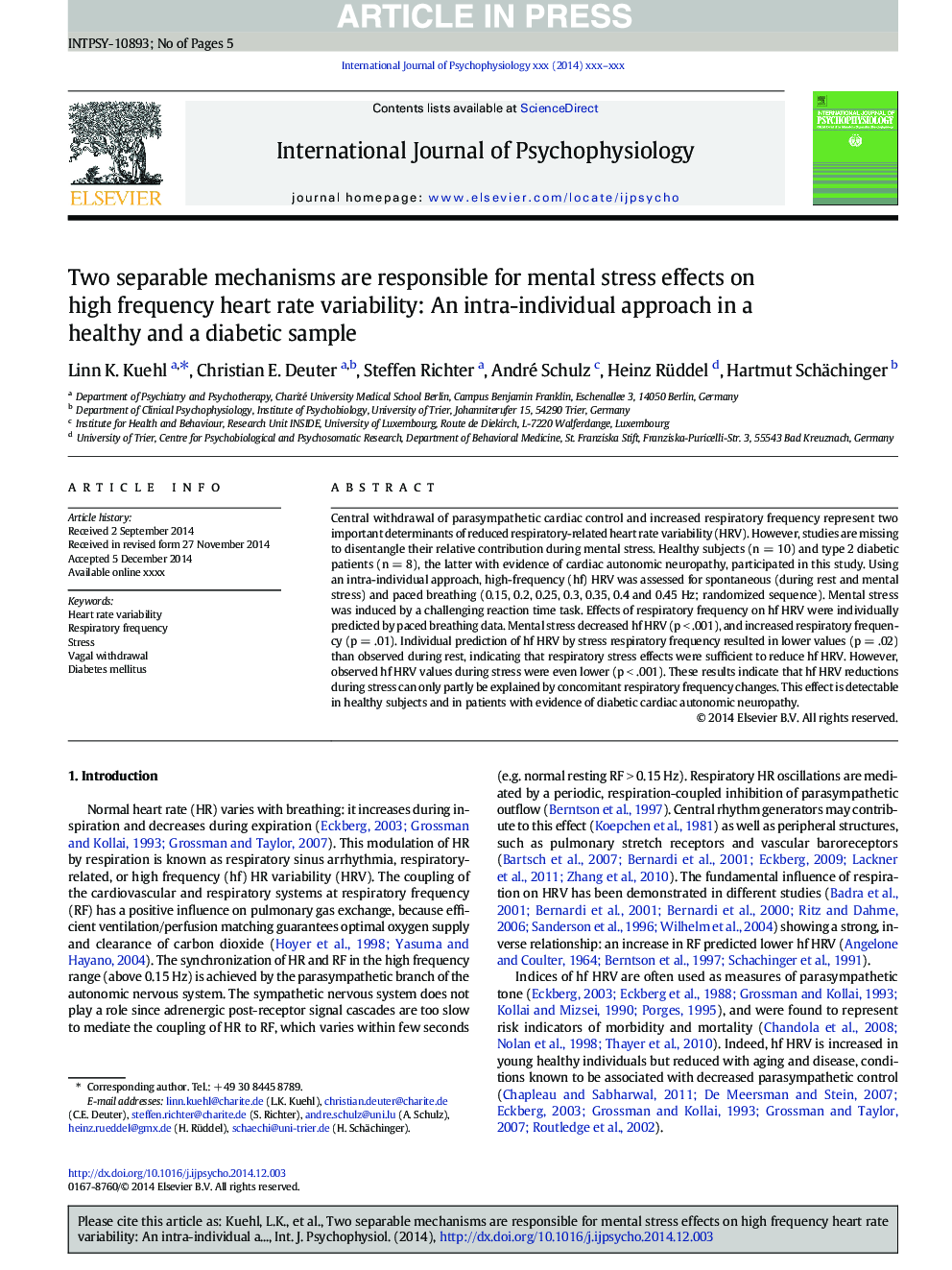| Article ID | Journal | Published Year | Pages | File Type |
|---|---|---|---|---|
| 7295465 | International Journal of Psychophysiology | 2015 | 5 Pages |
Abstract
Central withdrawal of parasympathetic cardiac control and increased respiratory frequency represent two important determinants of reduced respiratory-related heart rate variability (HRV). However, studies are missing to disentangle their relative contribution during mental stress. Healthy subjects (n = 10) and type 2 diabetic patients (n = 8), the latter with evidence of cardiac autonomic neuropathy, participated in this study. Using an intra-individual approach, high-frequency (hf) HRV was assessed for spontaneous (during rest and mental stress) and paced breathing (0.15, 0.2, 0.25, 0.3, 0.35, 0.4 and 0.45 Hz; randomized sequence). Mental stress was induced by a challenging reaction time task. Effects of respiratory frequency on hf HRV were individually predicted by paced breathing data. Mental stress decreased hf HRV (p < .001), and increased respiratory frequency (p = .01). Individual prediction of hf HRV by stress respiratory frequency resulted in lower values (p = .02) than observed during rest, indicating that respiratory stress effects were sufficient to reduce hf HRV. However, observed hf HRV values during stress were even lower (p < .001). These results indicate that hf HRV reductions during stress can only partly be explained by concomitant respiratory frequency changes. This effect is detectable in healthy subjects and in patients with evidence of diabetic cardiac autonomic neuropathy.
Related Topics
Life Sciences
Neuroscience
Behavioral Neuroscience
Authors
Linn K. Kuehl, Christian E. Deuter, Steffen Richter, André Schulz, Heinz Rüddel, Hartmut Schächinger,
